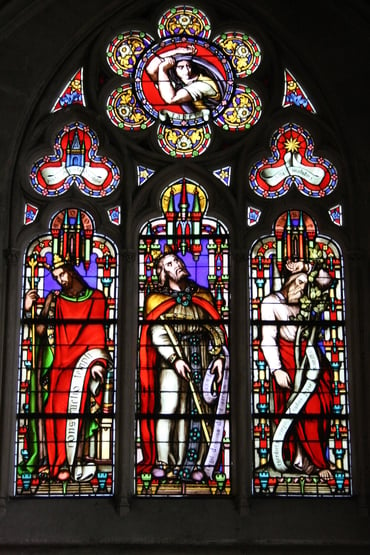1
Y acaeció estar allí un varón de Belial que se llamaba Seba, hijo de Bicri, varón de Jemini, el cual tocó la trompeta diciendo: No tenemos nosotros parte en David, ni heredad en el hijo de Isaí. Israel, ¡cada uno a sus estancias!
2
Así se fueron de en pos de David todos los varones de Israel, y seguían a Seba hijo de Bicri; mas los que eran de Judá fueron adheridos a su rey, desde el Jordán hasta Jerusalén.
3
Y luego que llegó David a su casa en Jerusalén, tomó el rey las diez mujeres concubinas que había dejado para guardar la casa, y las puso en una casa bajo guardia, y les dio de comer; pero nunca más entró a ellas, sino que quedaron encerradas hasta que murieron en viudez de por vida.
4
Y el rey dijo a Amasa: Júntame los varones de Judá para el tercer día, y hállate tú aquí presente.
5
Fue, pues , Amasa a juntar a Judá; pero se detuvo más del tiempo que le había sido señalado.
6
Y dijo David a Abisai: Seba hijo de Bicri nos hará ahora más mal que Absalón; toma pues tú los siervos de tu señor, y ve tras él, no sea que halle las ciudades fortificadas, y se nos vaya de delante.
7
Entonces salieron en pos de él los hombres de Joab, y los cereteos y peleteos, y todos los hombres valientes salieron de Jerusalén para ir tras Seba hijo de Bicri.
8
Y estando ellos junto a la grande peña que está en Gabaón, les salió Amasa al encuentro. Y Joab estaba ceñido sobre su ropa que tenía puesto, sobre la cual tenía ceñido un cuchillo pegado a sus lomos en su vaina, el cual salió y cayó.
9
Y Joab dijo a Amasa: ¿Tienes paz, hermano mío? Y tomó Joab con la diestra la barba de Amasa, para besarlo.
10
Y Amasa no se cuidó del cuchillo que Joab tenía en la mano; y él le hirió con el cuchillo en la quinta costilla , y derramó sus entrañas por tierra, y cayó muerto sin darle segundo golpe. Después Joab y su hermano Abisai persiguieron a Seba hijo de Bicri.
11
Y uno de los criados de Joab se paró junto a él, diciendo: Cualquiera que amare a Joab y a David vaya en pos de Joab.
12
Y Amasa se había revolcado en la sangre en mitad del camino; y viendo aquel hombre que todo el pueblo se paraba, apartó a Amasa del camino al campo, y echó sobre él una vestidura, porque veía que todos los que venían se paraban junto a él.
13
Luego que fue apartado del camino, pasaron todos los que seguían a Joab, para ir tras Seba hijo de Bicri.
14
Y él pasó por todas las tribus de Israel hasta Abel y Bet-maaca y todo Barim; y se juntaron, y lo siguieron también.
15
Y vinieron y lo cercaron en Abel de Bet-maaca, y pusieron baluarte contra la ciudad; y el pueblo se puso al muro; y todo el pueblo que estaba con Joab trabajaba por derribar la muralla.
16
Entonces una mujer sabia dio voces en la ciudad, diciendo : Oíd, oíd; os ruego que digáis a Joab se llegue hasta acá, para que yo hable con él.
17
Y cuando él se acercó a ella, dijo la mujer: ¿Eres tú Joab? Y él respondió: Yo soy. Y ella le dijo: Oye las palabras de tu sierva. Y él respondió: Oigo.
18
Entonces volvió ella a hablar, diciendo: Antiguamente solían hablar, diciendo: Quien preguntare, pregunte en Abel; y así concluían.
19
Yo soy de las pacíficas y fieles de Israel; y tú procuras destruir una ciudad que es madre de Israel; ¿por qué destruyes la heredad del SEÑOR?
20
Y Joab respondió, diciendo: Nunca tal, nunca tal me acontezca, que yo destruya ni deshaga.
21
La cosa no es así; mas un hombre del monte de Efraín, que se llama Seba hijo de Bicri, ha levantado su mano contra el rey David; entregad a ése solamente, y me iré de la ciudad. Y la mujer dijo a Joab: He aquí su cabeza te será echada desde el muro.
22
La mujer fue luego a todo el pueblo con su sabiduría; y ellos cortaron la cabeza a Seba hijo de Bicri, y la echaron a Joab. Y él tocó la trompeta, y se esparcieron todos de la ciudad, cada uno a su estancia. Y Joab se volvió al rey a Jerusalén.
23
Así quedó Joab sobre todo el ejército de Israel; y Benaía hijo de Joiada sobre los cereteos y peleteos;
24
y Adoram sobre los tributos; y Josafat hijo de Ahilud, el canciller;
25
y Seba, escriba; y Sadoc y Abiatar, sacerdotes;







